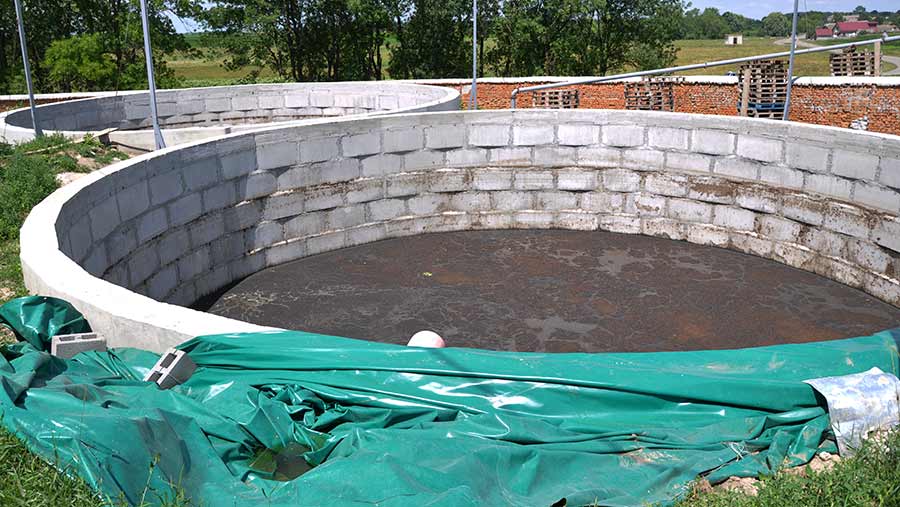Planning delays hold up slurry store development in Wales
 © Prestligetka/Adobe Stock
© Prestligetka/Adobe Stock Challenges with securing local authority planning permission is preventing Welsh farmers from building slurry stores to meet pollution control regulations.
By 1 August 2024, farms will need to have sufficient capacity to store slurry for five months or risk prosecution under the new Water Resources (Control of Agricultural Pollution) (Wales) Regulations 2021.
See also: Welsh government delays NVZ rule change to October
But one planning consultant, who has a number of applications lodged with different planning authorities and asked not to be named, suggested they are not supporting applications.
“Councils are not on board with the new NVZ requirements, and for some businesses it could mean the end,” he predicted.
The chief reason for rejecting applications are phosphate related, he said, with guidance to planners issued by Natural Resources Wales (NRW).
In a special area of conservation (SAC), the consultant said some councils were taking a hard-line approach to new slurry infrastructure, even though applicants aren’t increasing livestock numbers or phosphate levels – only storage to comply with the new regulations.
“Based on inconsistent and unclear consultation responses [by NRW], it is difficult for councils to support proposals. NRW seems to view more slurry being stored in one place as increasing phosphates,” he said.
“The exception seemed to be slurry towers, where there is a cover, because they see that as reducing and controlling ammonia emissions.”
Without the necessary storage, farmers could be forced out of business, as reducing livestock numbers is not a viable option.
He is therefore appealing to NRW to provide “clear and pragmatic” consultation responses, with additional guidance to local authorities on planning consent needed for NVZ compliance.
NRW statement
In a statement, NRW said it would provide more information on agricultural developments later this year.
It pointed out that it was not responsible for how local authorities approached planning decisions and that developments in SAC catchments should be considered on a case-by case basis, and with a habitats regulations assessment undertaken.
It advised that a development that reduces the frequency or volume of irregular phosphorus discharges, such as covering yards and existing manure/slurry stores, is not likely to have a significant effect on a river, as there is unlikely to be a source of additional phosphorus.
“It is the responsibility of the planning authority to assess proposals for slurry storage in line with these principles,” said an NRW spokesperson.
